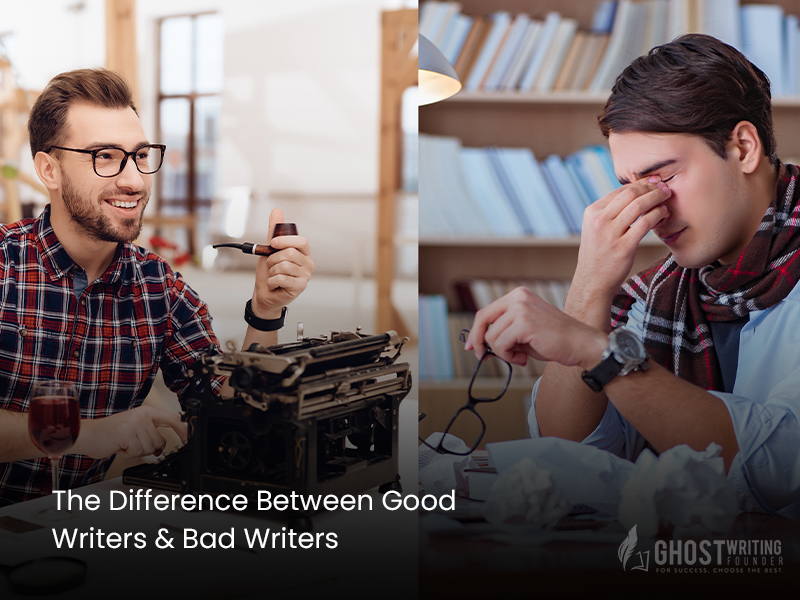
Writing
Writing is a task that keeps your senses involved and your eyes sharp. It keeps your hand engaged and your mind active. Through writing, you can express your ideas and communicate about everything. It’s more than observation and recording of facts. It’s about saving the lives of others and oneself via writing. The page on which you write represents the truths about you and the world you see and hear.
But what if your writing isn’t effective. You are ideas aren’t interesting, and your thoughts aren’t clear. What if your sentence construction is illogical, and your word choice is awkward? Then you have a perfect recipe for bad writing.
So how do we distinguish between good writing and bad writings? Likewise, what is the difference between good writers and bad writers?
In this post, I’ll talk about the major differences between good writers and bad writers and share some strategies to become an effective writer for the readers.
Let’s discuss first,
What is Good Writing?
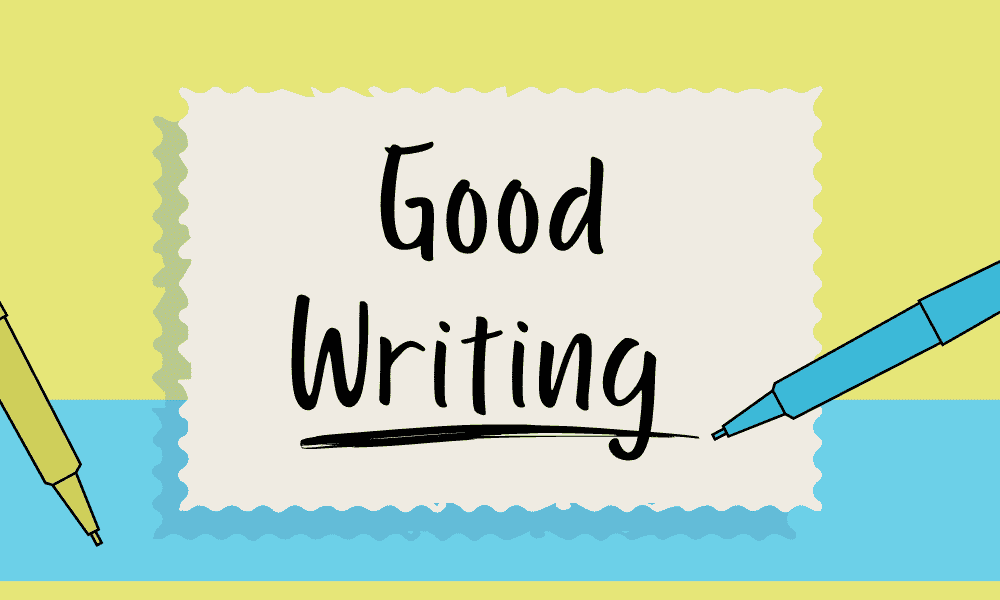
Good writing incites emotions. It engages the readers through effective writing strategies. It connects the readers to a new imaginative world. It involves elements like organization, evidence, expressions, grammar, spelling, and punctuation. If your writing is coherent and gets successful in gaining the readers’ attention, it is called good writing. Likewise, good writing does not mean that you start imitating Shakespeare; you write complex and complicated words that are even hard to pronounce to their syllable length. Good writing is simple writing. It is not forced on the readers. Rather it keeps the language smooth and flowing. Good writing is all about good communication.
What is bad writing?
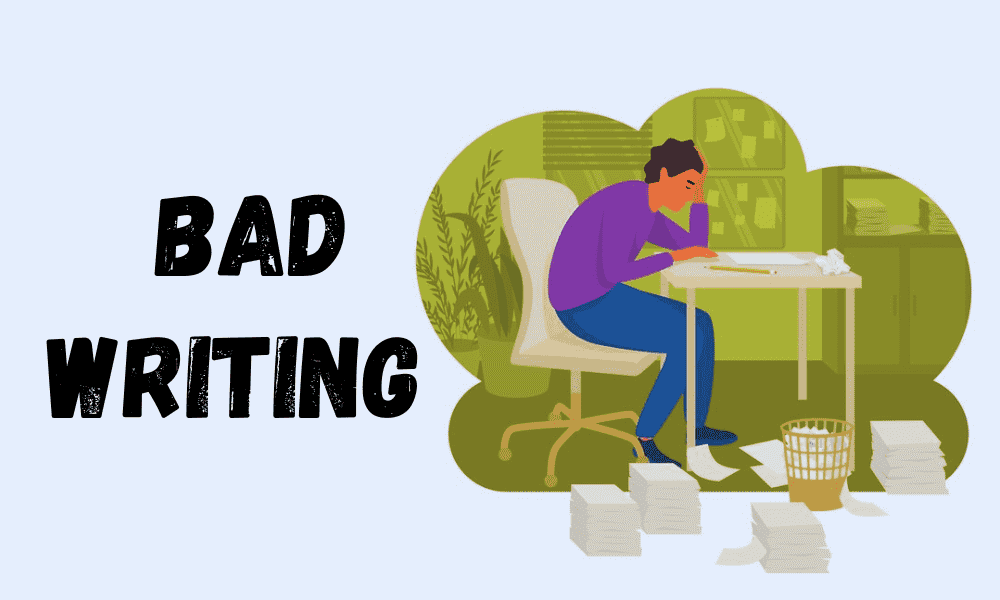
Bad writing is beyond writing bad. It involves mistakes in syntax, grammar, plot, concept, and data accuracy. No matter how good your story is, it makes for a bad writer if there is a mistake in it. Likewise, it is lethargic and downright boring for the readers. Irrespective of the storyline, if one’s writing is not effective, then your readers will have a problem in understanding your content.
Who is a Good Writer?

A good writer is a person who writes effectively in an engaging manner. A couple of good writers’ habits need to be followed and practiced every day to enhance writing.
Good Writers Habit No.1: Readers Friendly
Good writers create readers with friendly content. Here friendly refers to the type of content that can be understood by all. According to Reader’s Analysis, writer should write a grade 5 level writing. If your target audience cannot connect to your writings, then you’re writing goals will not be fulfilled. Your readers will become uninterested in your content.
Good Writer Habit No.2: Strong voice
Good writer write in their own voice. They have a confident tone that builds their authority and credibility among their readers. Good writer believe that having your voice makes you memorable and recognizable. Likewise, people start to trust the content whenever they see it.
Good Writers Habit No.3: Embrace flaws and mistakes
One of the best habits of good writers is that they are open to challenges. They wholeheartedly accept their mistakes and embrace their errors. They know that there are things that are beyond their control. Therefore, they do not care if they make mistakes. They don’t wallow in the dark. All they do is accept their mistakes, make amends, edit their content, and move on. This makes them fantastic learners as well. This is the biggest stark difference between a good writer and a bad writer.
Good Writers Habit No.4: They eliminate distractions
Good writers know that focus helps in creating effective content. Therefore, they eliminate all the distractions from their surroundings and perform deep focus on their work. Sometimes they even avoid contact with other people so that they can write effectively. They concentrate all their energies on creating their content so that their readers can learn from them, their experiences, and their failures. They are transparent and do not hoard anything within themselves. Rather they believe in sharing knowledge for the sake of other’s betterment.
Who is a bad writer?
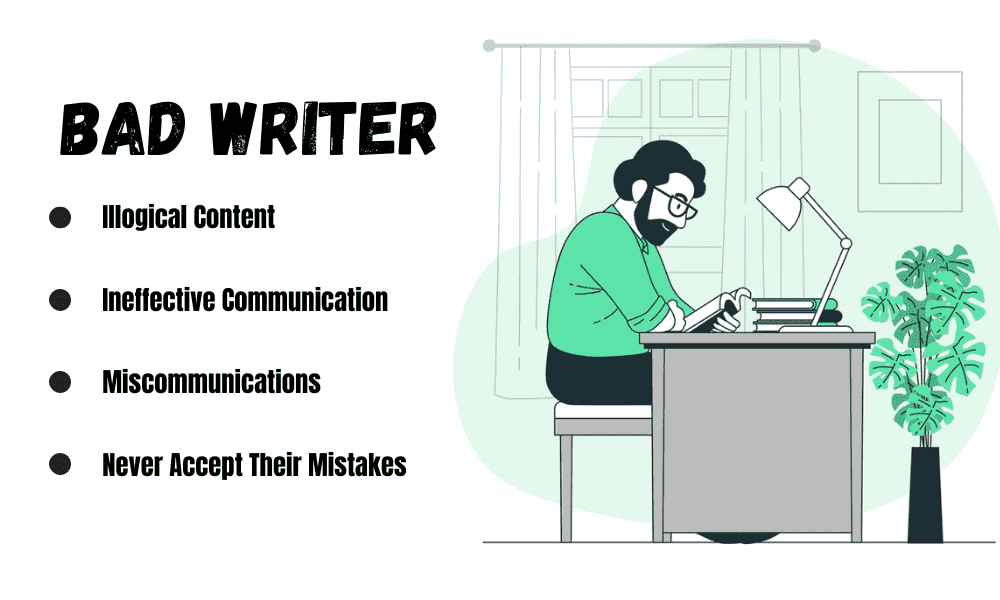
A bad writer will always find it easy to fill the pages. Even if ideas matter to them, they are unable to execute them properly for a number of reasons: proper language, style guide, organization, and the communicative structure.
Bad Writers Habit No.1: Illogical content
Bad writers are unable to create logical and connected text. Their work is always chaos for the readers. The readers get troubled in going through the text. Likewise, the readers feel that there are many knowledge gaps in the text as the author appears to be shallow and talk only on the surface level. Their content seems to be disconnected and indirect.
Bad Writers Habit No.2: Ineffective communication
Bad writers often miss their target of communication. They drag the same object to the point of creating redundancy in the text. They are unable to formulate effective communicative structures. Their voice is shaky and confusing. It seems like what they are writing about is not true. They don’t believe it themselves. They appear to be close-minded people who lack enthusiasm, clarity, and conciseness in their writings.
Bad Writers Habit No.3: Miscommunications
Bad writers make miscommunications. What they say they do not implement on it. Likewise, they do not perform the way they establish their authority. They have collaboration skills, and once a conflict arises during work, they would blame the other person. In the case of a bad freelance writer, they will stop responding after taking the money. Similarly, their miscommunication often leads them to deliver the work late. Once the problem arises, they can be the first ones to break the trust of others.
Bad Writers Habit No.4: Never accept their mistakes
Bad writers never accept their mistakes. Unlike the good writer who is open to embracing the shortcomings, these folks get angry and harmful to themselves and others. Their inability to accept their mistakes make them a stagnant and close-minded person. Their growth is somehow stopped in the middle of their writing journey, making them produce inefficient content for their audience.
Difference between Good Writers & Bad Writers
Writing Difficulty:
Aubrey Kalitera, the author of “Why Father Why,” describes the difference between a good writer and a bad writer as: “A good writer will always find it very hard to fill a single page. A bad writer will always find it easy.”
Good writers are always the people who find it difficult to write more than anyone else. Many people will claim that writing is easy, but when it comes to writing, it never is!
Main Attributes and Elaborate Information
| Aspect | Good Writing Traits | Bad Writing Traits |
|---|---|---|
| Communication Style | Clear, concise, and engages readers through simple language. | Confusing, verbose, and often uses complex language unnecessarily. |
| Content Quality | Coherent, logical, and emotionally resonant. | Disjointed, illogical, and fails to connect emotionally. |
| Writer’s Approach | Open to embracing flaws and mistakes for improvement. | Reluctant to acknowledge mistakes, hindering growth. |
| Engagement with Audience | Writes with a strong, confident voice that builds trust and credibility. | Shaky and confusing tone, leading to a lack of trust and credibility. |
| Perspective | Consistent and empathetic, creates a powerful impact. | Inconsistent and lacks empathy, leading to weak impact. |
| Editing Process | Thorough editing for clarity and precision (conceptual, line, copy-editing, proofreading). | Minimal or no editing, resulting in ambiguity and errors. |
| Response to Challenges | Embraces challenges and views difficulties in writing as opportunities for growth. | Avoids challenges and gives up easily, showing a limited growth mindset. |
- The thinking pattern:
Good writers have a growth mindset that makes them open to challenges and failure. At the same time, bad writers have limited knowledge and a short-tempered mindset that halts their learning journey. Similarly, they are not open to embracing their mistakes. Making them understand their faults and errors is difficult. Walter Benjamin says that:” A bad writer is a writer who always says more than he thinks. A good writer is a writer who does not say more than he thinks.”
Fear:
Good writers can overcome their fear through consistent writing behavior. If writing makes them terrified, they still pursue their passion until and unless they are no longer afraid of writing. At the same time, the bad writers give up in times of adversary. Due to their limited growth mindset, they are afraid of falling into an unknown writing abyss. The adverse effects of fear not only reflect on their writing, but their health also deteriorates, impacting their physical and mental health.
Perspective
Bad writers cannot form a clear perspective. Their words are forced and somewhat imposed on the readers. They lack empathy in their writings that halts the natural flow of writing, disturbing their clarity. Likewise, their perspective during writing keeps changing. Hence, their content becomes futile and powerless. In contrast, good writers know that their writing creates an impact on their readers. They seek to create engaging content that is helpful and informative for their readers.
Editing:
Editing is a crucial part of effective writing. If someone misses this opportunity to edit and proofread their work, then it creates confusion and ambiguity. For the sake of precision and clarity in the text, editing is necessary. Good writers understand this by heart. Therefore, they write with fully focused minds that help them formulate their ideas in a coherent and connected manner. They keep editing their text through several ways like conceptual editing, line editing, copy-editing, and proofreading. On the other hand, the ineffective writer does not realize the importance of editing. After creating their first draft, they believe work to be done. This attitude produces inaccurate and faulty communicative piece. They are not precise when it comes to editing. This makes their writing bad and unproductive.

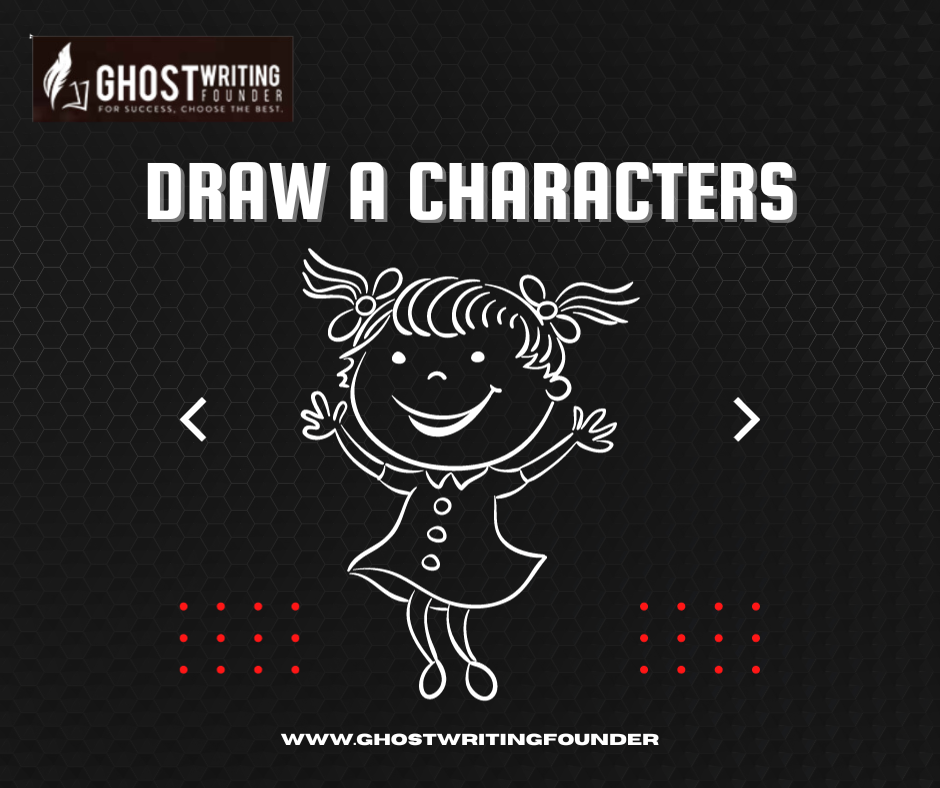
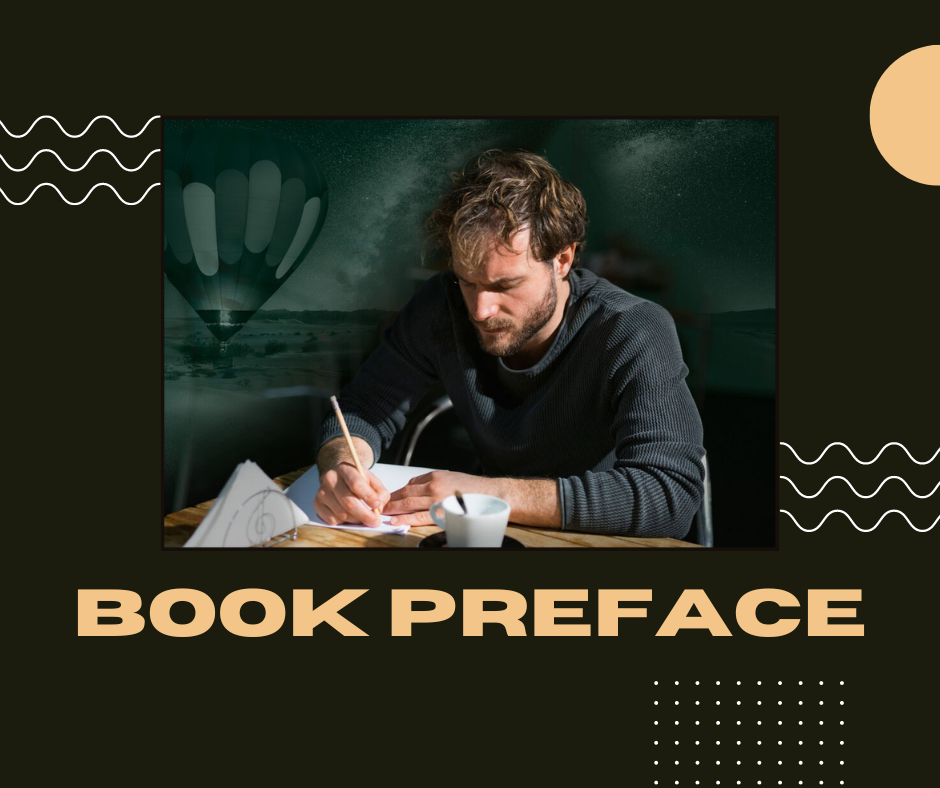






Leave a Reply